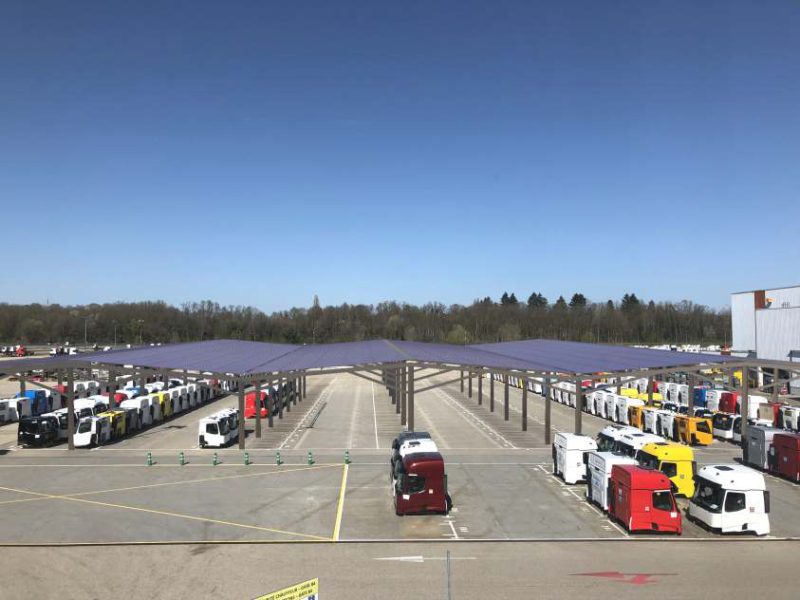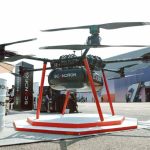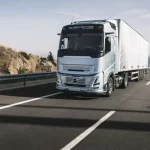Renault Trucks switching to renewable energy with 17 hectares of solar canopies
The solar canopy project between Renault Trucks and TotalEnergies is set to be one of the largest in France. At its peak, the solar farm can produce over 22 megawatts which can cover the equivalent consumption of 17,500 people, or 43% of the population of Bourg-en-Bresse.
By Gemma Q. Casas
The company is aiming to equip the Bourg-en-Bresse industrial site with solar canopies covering an area of 17 hectares. This project, which is emblematic of Renault Trucks’ shift to low-carbon operations, marks a significant step in the transition to renewable energy production since its electricity output will cover the equivalent consumption of 17,500 inhabitants.
With renewable energy gaining more importance as the world grapples to fight global warming and climate change, one of Europe’s biggest truck manufacturers is pursuing its ambitious project to transition to solar power.
Renault Trucks, in partnership with TotalEnergies, is pursuing its energy transition with far-reaching impact on its production and the site where it’s building its own solar farm.
The company is aiming to equip the Bourg-en-Bresse industrial site with solar canopies covering an area of 17 hectares. This project, which is emblematic of Renault Trucks’ shift to low-carbon operations, marks a significant step in the transition to renewable energy production since its electricity output will cover the equivalent consumption of 17,500 inhabitants.
With a total output of over 22 peak megawatts spread over 17 hectares, this solar canopy project is set to be one of the largest in France. Its electricity production will cover the equivalent consumption of 17,500 people, or 43% of the population of Bourg-en-Bresse.
Part of the energy produced by the solar power station will be used by the plant. As a result, 30% of the site’s electricity consumption will be supplied by the canopies, which will also have the added benefit of protecting both employees’ vehicles and the trucks produced at the plant.
Biggest solar project in France
Renault’s solar canopy project is one of the most extensive in France, and reflects its joint commitment with TotalEnergies to decarbonize their activities.
Marin de Montbel, Managing Director of TotalEnergies Renouvelables France, said, “We’re extremely proud to be supporting Renault Trucks in its energy transition. Through this project, we’re demonstrating our ability to develop technically complex projects that create value.”
Karine Forien, Vice President Strategy & Sustainability at Renault Trucks, sternly said, “At Renault Trucks, we’re strongly committed to decarbonizing our industry and preserving our resources. We’re backing up our commitments with tangible actions, including the electrification of our vehicle ranges, which immediately eliminates CO2 emissions in use, and the decarbonisation of our own operations. The energy transition is at the core of our strategy and this solar canopy project is a prime example.”
The solar canopies are due to be commissioned in 2026.
The DOLPHIN Project
Continuing its investment in research to offer increasingly efficient, low-carbon vehicles that can adapt to changes in the transport industry, Renault Trucks unveiled in December the DOLPHIN Project.
Through the collaborative DOLPHIN project, Renault is set to develop an electric laboratory vehicle to pave the way for the future generation of electric long-haulage trucks. The aim is to assess the potential for technological innovation in terms of energy and environmental optimization, safety, ergonomics, and on-board comfort.
The DOLPHIN project which stands for Development Original truck Lab for PHysical INtegration is being led by Renault Trucks with a consortium of industrial and academic research partners based in the Auvergne-Rhône-Alpes region.
The consortium comprises Lamberet, a manufacturer of refrigerated semi-trailers; SafetyTech- a Gauzy Compagny, a specialist in driving comfort and safety solutions for coaches, buses, motorhomes and trucks; the Laboratoire de Mécanique des Fluides et d’Acoustique, the Laboratoire Ampère, the Laboratoire de Mécanique des Contacts et des Structures, supervised by the INSA (National Institute of Applied Sciences), among others; and the Laboratoire de Psychologie Sociale et Cognitive, supervised by Clermont Auvergne University.
This collaborative project aims to build a demonstration vehicle, based on an all-electric truck, to test and evaluate technological innovations in three areas of research:
- Energy and environmental optimization, with research focusing on the aerodynamics of the all-electric vehicle and, more generally, on the energy efficiency of the entire assembly.
- Safety for road users, with the integration of specific equipment to enhance the detection of vulnerable road users.
- Ergonomics and on-board comfort, with a completely redesigned dashboard and new interior fittings, provide an innovative on-board experience centered on the driver’s well-being.
- New mobile applications enabling optimized management of bodywork equipment will also be tested.
For Renault Trucks, the DOLPHIN project is a way of preparing its future generations of electric trucks by exploring and advancing the maturity of new technologies. Production of the laboratory truck will start in the spring of 2024.
The DOLPHIN project is the winner of the “CORAM 2022” call for projects (Comité d’Orientation pour la Recherche Automobile et Mobilité), which supports innovation projects that will accelerate the transition to the vehicle of the future. It has been funded by the French government as part of France 2030 and by the European Union – Next Generation EU as part of the France Relance plan.
Renault’s legacy
Building on the legacy of more than a century of innovative French truck know-how, Renault Trucks has kept its headquarters in Lyon, France, since 1894, where all its medium and high tonnage trucks are designed and manufactured.
Renault Trucks also offers a range of services that includes solutions for financing and insurance, predictive maintenance, and optimizing fuel use, as well as the supply of spare parts.
With 60,000 vehicles sold in 2022, Renault Trucks is one of the world leaders in heavy goods vehicles. About 9,700 employees are involved in the design, production, and sales of Renault trucks and services worldwide. It is part of the Volvo Group, one of the world’s leading manufacturers of trucks and transport solutions.
(Source: www.renault-trucks.com)














